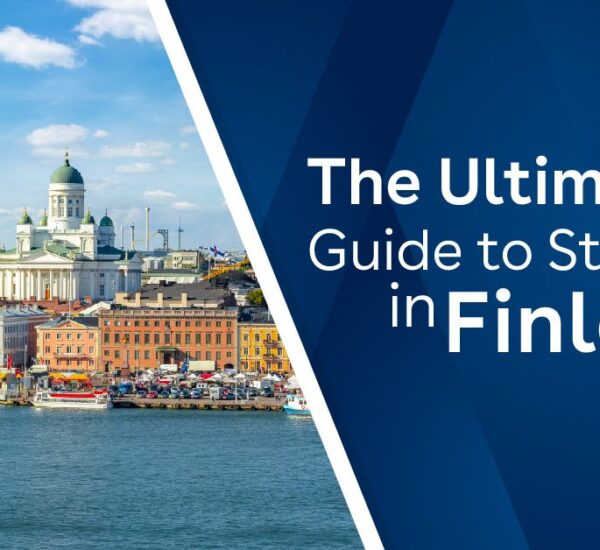Studying in Sweden offers an unbeatable combination of world-class education, innovative research, and an English-friendly environment—all set against a backdrop of stunning Nordic landscapes and vibrant student life. With over 900 English-taught programs, generous scholarship opportunities, and no IELTS requirement for many applicants, Sweden has become a top destination for international students seeking both quality and affordability. In this expanded guide, we’ll cover:
Table of Contents
1. Top Reasons to Study in Sweden
World-Class Education
Swedish universities rank consistently among the top 100 globally (QS, THE).
Focus on critical thinking, group projects, and hands-on research.
English-Taught Programs
Over 900 Master’s and Bachelor’s degrees in English, from Machine Learning to Global Health.
No Swedish language barrier required.
No IELTS Needed
Many universities accept prior English-medium degrees or 60 ECTS credits taught in English instead of IELTS—see Section 3.
Innovative Research & Industry Links
Partner with global firms like Spotify, Volvo, and Ericsson.
State-of-the-art labs in AI, clean energy, and biotechnology.
Affordable Living & Tuition
EU/EEA students study tuition-free; non-EU tuition starts around €9,000/year.
Monthly living costs €800–€1,100 in Stockholm, €650–€900 in smaller cities.
Generous Scholarships
Swedish Institute Scholarships, Visby Program, Chalmers IPOET, and many more.
High Quality of Life
Ranked among the world’s happiest countries (World Happiness Report).
Emphasis on sustainability, gender equality, and work-life balance.
Vibrant Student Life
Student nations (Lund, Uppsala) host clubs, sports, and cultural events.
Thriving international community fosters lifelong friendships.
2. Leading Swedish Universities for International Students
| University | Location | QS World Rank (2024) | Notable Strengths |
|---|---|---|---|
| Lund University | Lund | 97 | Life Sciences, Engineering, Social Sciences |
| Uppsala University | Uppsala | 123 | Medicine, Humanities, Mathematics |
| KTH Royal Institute of Technology | Stockholm | 140 | Engineering, Architecture, Computer Science |
| Chalmers University of Technology | Gothenburg | 125 | Automotive Engineering, Nanotechnology |
| Stockholm University | Stockholm | 177 | Natural Sciences, Law, Economics |
| Karolinska Institutet | Stockholm | 42 | Medicine & Health Sciences |
| University of Gothenburg | Gothenburg | 169 | Environmental Studies, Natural Resources |
| Linköping University | Linköping | 291–300 | Education, Industrial Engineering, Media |
Why these universities?
Lund & Uppsala: Historic campuses, renowned student nations, robust exchange programs.
KTH & Chalmers: STEM powerhouses with strong industry partnerships.
Karolinska Institutet: Top in global health and medical research.
3. How to Study in Sweden Without IELTS
Sweden’s flexible English proficiency requirements mean that many international students can skip IELTS altogether if they satisfy one of these criteria:
English as Main Subject
Bachelor’s or Master’s degree (Swedish kandidatexamen equivalent) where English was the primary instruction language.
60 ECTS Credits in EU/EEA/Switzerland
Completed at least 60 ECTS taught in English at an EU/EEA institution.
60 ECTS Credits from Select Non-EU Countries
United States, UK, Canada (excluding Quebec), Australia, New Zealand, Jamaica—60 credits taught in English.
Three-Year Bachelor’s from Certain African Nations
Eritrea, Ghana, Kenya, Nigeria, Uganda, etc., with English instruction.
South Asia Special Cases
India & Pakistan: 3-year degree in Engineering, Computer Science, Natural Sciences, Medicine, or Pharmacy where instruction was in English.
Note: All proofs must be officially documented and listed on university websites under “English language requirements.”
4. Application & Visa Process
A. Application Steps
Choose Your Program
Use the Universityadmissions.se portal to compare 900+ English-taught programs.
Prepare Documents
Transcripts, degree certificates, CV, motivation letter, reference letters, and proof of English proficiency (if not covering by above criteria).
Submit via Universityadmissions.se
Deadlines: 15 January for most Master’s; 15 April for certain programs.
Await Letter of Admission
Conditional on final transcripts and funding proof.
B. Sweden Student Visa (Residence Permit)
Who Needs It?
- Non-EU/EEA students enrolling in full-time programs.
Key Documents:
- Letter of Admission
- Valid Passport
- Proof of Funds (€8,568/month × 12 = ~€102,816/year)
- Health Insurance
- Housing Confirmation
Process:
- Apply Online via the Swedish Migration Agency (Migrationsverket).
- Pay Fee: SEK 1,500 (~€130).
- Biometrics Appointment at Swedish embassy/consulate.
- Processing Time: 3–4 months—apply early!
5. Tuition & Living Costs
A. Tuition Fees
| Student Status | Tuition Fee |
|---|---|
| EU/EEA Students | Free |
| Non-EU Bachelor’s | ~€9,000–€15,000/yr |
| Non-EU Master’s | ~€9,000–€15,000/yr |
| Doctoral Programs | Free + stipend |
B. Monthly Living Expenses
| Expense | Cost (EUR) |
|---|---|
| Accommodation | €400–€700 |
| Food & Groceries | €200–€300 |
| Transport (student pass) | €60–€80 |
| Utilities & Internet | €50–€70 |
| Leisure & Misc. | €100–€200 |
| Total | €810–€1,350 |
6. Top Scholarships in Sweden
Swedish Institute Scholarships for Global Professionals
Covers tuition, living expenses, travel grants, and insurance.
Visby Programme Scholarships
For students from Baltic countries (Estonia, Latvia, Lithuania).
Chalmers IPOET Scholarships
Targeted at technology & engineering Master’s students.
Blekinge Institute of Technology Scholarships
Merit-based awards for tech and IT programs.
Borås University Tuition Waiver
Full or partial waivers for non-EU Master’s students.
Halmstad University Scholarships
Grants for academic excellence in engineering and informatics.
University of Gothenburg’s Master’s Scholarships
Covers tuition + living stipend.
Stockholm University Global Scholarship
For top achieving Master’s candidates.
Mälardalen University Scholarships
Competitive awards for business and engineering.
Uppsala University International Scholarships
Covers tuition for select Master’s programs.
7. Work While Studying in Sweden
- EU/EEA Students: Unlimited work hours.
- Non-EU Students: Up to 20 hours/week during term; full-time in summer/winter breaks.
- Minimum Wage: SEK 120–145/hour (€11–€13).
- Popular Sectors: Cafés, retail, tutoring, campus services.
8. Student Life & Culture
Student Nations (Lund/Uppsala):
Organize clubs, sport teams, fika gatherings, and historic ball traditions.
Festivals:
Valborg (Walpurgis Night), Lucia, and Midsummer celebrations.
Nature Access:
Archipelago tours, hiking in national parks, skiing in winter.
9. Frequently Asked Questions (FAQs)
Can I study in Sweden without IELTS?
Yes, if you meet the criteria in Section 3 (e.g., 60 ECTS in English).
How much money do I need to live in Sweden?
Approximately €10,000–€16,000/year (living costs only).
What scholarships can cover my tuition?
Swedish Institute Scholarships, Visby, Chalmers IPOET, and many more.
Can I stay in Sweden after graduation?
Apply for a residence permit extension to seek work (up to 12 months).
Are there English-taught bachelor’s programs?
Limited, but growing—mostly in Business, IT, and Design.
Ready to Study in Sweden?
With no IELTS, tuition support, and vibrant student life, Sweden stands out as a top choice for ambitious international students. Start exploring English-taught programs, apply for Swedish Institute Scholarships, and prepare for a life-changing journey in the heart of Scandinavia!
Call to Action:
- Visit Universityadmissions.se —compare 900+ English programs.
- Check out Study in Sweden for detailed visa and housing guides.
- Apply for Swedish Institute Scholarships by 15 January 2025. Good luck!


